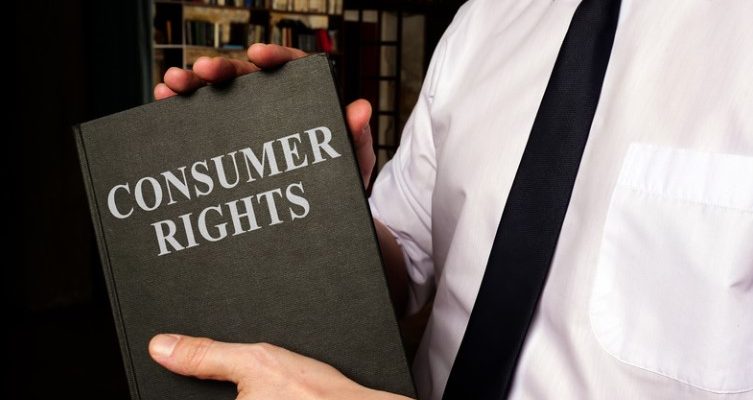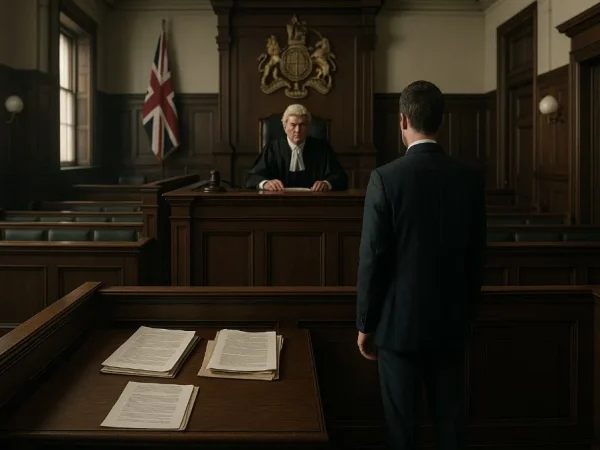
Complete Guide on Consumer Rights Act 2015 in UK
If you are a consumer in the UK, you have rights under the Consumer Rights Act 2015 (CRA). This act replaces several consumer protection laws and strengthens them. The CRA covers certain aspects of contracts between consumers and businesses. It gives consumers more rights when purchasing, using services, or participating in any business activity.
The act also makes it easier for people to take legal action if they feel a business has wronged them. This guide provides an overview of all the consumer rights covered by the CRA and how they can be exercised.
Consumer Rights Act 2015

The CRA 2015 replaces a number of consumer protection laws, including the Sale of Goods Act 1979 and the Consumer Credit Act 1974. It strengthens rights for consumers in relation to contracts (including terms and conditions), services, unfair terms in consumer contracts, supply of defective goods and services, digital content rights and online advertising. The act also makes it easier for people to take legal action if they feel that a business has wronged them.
The following are some key aspects of consumer rights covered by the CRA:
- Contracts between consumers and businesses: Under the act, all contracts between consumers and businesses must be in writing. This includes contracts for goods, services and digital content. Businesses must also provide consumers with clear and concise terms and conditions of the contract and information about any additional fees or costs that may apply. If consumers feel they need more reasonable care and attention when purchasing, they can take legal action against the business.
- Services: Under the act, all services supplied by small businesses must be provided reasonably. This means private limited companies must refrain from forcing customers to use their service in a particular way (for example, by using unfair terms), charging excessive fees or providing poor-quality service. If a consumer feels they have been treated unfairly by a business, they can take legal action.
- Unfair terms in consumer contracts: The act makes challenging unfair terms in consumer contracts easier. This includes terms that are difficult or impossible to terminate, conditions that must be met before the contract can be terminated and excessive penalties for early termination. For example, if you purchase something from a store and agree to pay for it within 14 days but decide after 10 days not to make the purchase, you may have grounds to dispute the 14-day term.
- Digital content: The act protects consumers’ rights when they purchase digital content (such as music, movies and books). This includes the right to receive the digital content you have paid for, access it conveniently, and keep it forever. If you believe your rights have been violated by the business selling digital content, you can take legal action.
What are Consumer Rights?

Under the CRA, consumers have rights to various goods and services. These rights cover things like getting what you paid for (the right to a refund), dealing with problems after buying goods or services (the right to receive quality goods and services) and being given accurate information about products (the right to know your consumer rights).
The act also allows consumers to take legal action if they feel that businesses have wronged them. This means that consumer rights are theoretical and can be exercised in court with the help of no win no fee solicitors.
What is covered by the Consumer Rights Act 2015?
The CRA covers – contracts between consumers and businesses
- Using goods, services, or activities in a way that is wrong
- Unfair terms in consumer contracts
- Misleading marketing practices
The act applies to all contracts between consumers and businesses in the UK, including digital contracts. This means that consumer rights apply to things like contract terms (the price you are charged), delivery (when the product will be delivered), product quality (indicating whether there are any defects), guarantees/warranties given by a business about its products or services, refund policy/details of returns policy etc.
Consumer Rights Act 2015 Refund
According to the act, a business must refund any money you’ve paid if it doesn’t meet your expectations. The act covers digital content (like eBooks) and physical goods (like cars). So you can either get your money back immediately or – in some cases – have the product replaced or refunded.
Consumer Rights Act 2015 Guarantees/Warranties
A guarantee is a promise made by a trader to a customer under the terms of the Consumer Rights Act of 2015 to fix, replace, or refund goods that fall short of the promises made.
Consumer Rights Act 2015 Digital Content
In addition to stating that any goods containing faulty digital content are protected by the remedies given for them, Chapter 3 of the Consumer Rights Act 2015 covers contracts between a trader and consumer in relation to digital content, as opposed to goods and services.
Consumer Rights Faulty Goods

If you discover a defective product within 30 days, you have the legal right to return it. You can return the item and receive a complete refund. You must inform the vendor that you are breaking the contract verbally or in writing.
Consumer Rights Faulty Goods Under Warranty
It might be feasible to sue the manufacturer if consumer rights are abused. Customers may demand compensation for losses such as replacement or repair costs. The maker can also be responsible for damages if the flaw leads to accidents or losses.
Statutory Rights Refund
The act also gives consumers the right to a refund if they are unsatisfied with the goods or services they’ve bought. This means that, in most cases, you can get your money back without hassle.
Consumer Rights Returning Goods
Within 30 days, you can receive a complete refund. However, our statutory rights have a lovely additional enhancement with this. The Consumer Rights Act of 2015 modified our ability to return defective goods and receive a full refund in most circumstances from a reasonable time to a predetermined timeframe, which is 30 days.
Consumer Rights Contract Cancellation
Within 14 calendar days of receiving the goods, a customer who purchased your products online can withdraw from the agreement and request a refund without providing any rationale or explanation (unless certain exclusions apply).
Consumer Rights Buying a Used Car
You have rights if the car that you are about to purchase has been previously used. It would help if you also took care when inspecting a car before buying it, as there might be hidden damage or defects. In case of any problem with the purchase and after following all your rights under consumer law discussed earlier, proceeding to arbitration can still help resolve disagreements.
Buying a Car Consumer Rights

The act entitles consumers to a number of rights when purchasing or trying to purchase a car. These entitlements include the right to receive a full refund if they are unsatisfied with their purchase, the right to reject an unwanted car and exchange it for another model within seven days without cost, and the right to disclose hidden defects in cars before buying them.
Business-to-Business Consumer Rights
You can still take legal action if your rights have not been upheld. Businesses must act reasonably when dealing with consumers and should respond to consumer complaints promptly. The law is clear regarding consumer rights: you have certain rights when purchasing goods or services from a business.
These rights include the right to receive a full refund if you are unsatisfied with your purchase, the right to reject an unwanted product and exchange it for another model within seven days without cost, and the right to disclose hidden product defects before buying them.
14-Day Consumer Rights
The seller must provide you with a cooling-off period of at least 14 days. Check the terms and conditions to see whether they’ve extended your time to change your mind.
Conclusion
In conclusion, the Consumer Rights Act 2015 is a huge step forward for consumers in the UK. It strengthens their rights in a number of ways, including giving them the right to a refund or replacement if goods are faulty and making it easier to take action against businesses that misled them.
In addition, the act protects consumers when buying digital content and creates a new right to reject unsatisfactory services. Overall, the Consumer Rights Act 2015 is a positive development for consumers and should help to make shopping in the UK more fair and transparent.
FAQ – Consumer Rights Act 2015

What are the main points of the Consumer Rights Act 2015?
- The act entitles consumers to a number of rights when purchasing or trying to purchase a car. These entitlements include the right to receive a full refund if they are unsatisfied with their purchase, the right to reject an unwanted car and exchange it for another model within seven days without cost, and the right to disclose hidden defects in cars before buying them.
- Businesses must act reasonably when dealing with consumers and promptly respond to complaints. The law is pretty clear regarding consumer rights: you have certain rights when purchasing goods or services from a business. These rights include the right to receive a full refund if you are unsatisfied with your purchase, the right to reject an unwanted product and exchange it for another model within seven days without cost, and the right to disclose hidden product defects before buying them.
- The act gives consumers fourteen days after receiving their car or product to decide whether they want a refund or any other change to their order. If you’re unsatisfied with your purchase, contact the seller as soon as possible and state your reasons for wanting a redressal process initiated.
What are the 8 basic rights of the consumers?
The eight consumer rights are as follows:
The right to basic needs fulfilment, which includes access to necessities, including,
- Food
- Clothing
- Shelter
- Health Care
- Education
- Public Utilities
- Water
- Sanitation
What 3 things must goods be under the Consumer Rights Act 2015?
According to The Sale of Products Act 1979 and The Consumer Rights Act 2015 (for purchases made before October 1, 2015), any goods you purchase must be: Of adequate quality, Suitable for any specific purpose disclosed to the seller, and as explained.
What is the 30 Days Consumer Rights Act 2015?
You have the right to return the goods for a refund within the first 30 days of purchase. This implies you can return a product for a full refund even if it doesn’t match the three requirements. This right does not cover digital downloads, but you can request a repair or replacement.
What is Section 23 Consumer Rights Act?
This section explains the consumer’s right to demand the trader bear the cost of any necessary repairs or replacements for defective goods. This includes paying for any expenses related to removing and replacing an installed item with a new one.
What is Section 49 Consumer Rights Act?
Any service agreement should require the trader to carry out the work responsibly and skillfully.
What is Section 28 Consumer Rights Act?
An “agreed” time or period is one that the trader and the customer have agreed upon for the delivery of the products.
The time when the contract is signed counts as the “agreed” time if there is a requirement to deliver the products.
What is Section 22 Consumer Rights Act 2015?
If a customer with the short-term right to reject does not exercise it within the allotted period, they forfeit that right unless the trader and the consumer agree that it may be exercised later.





